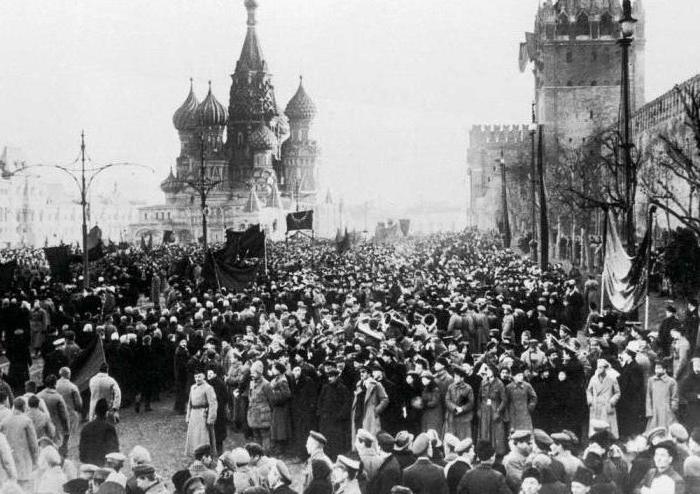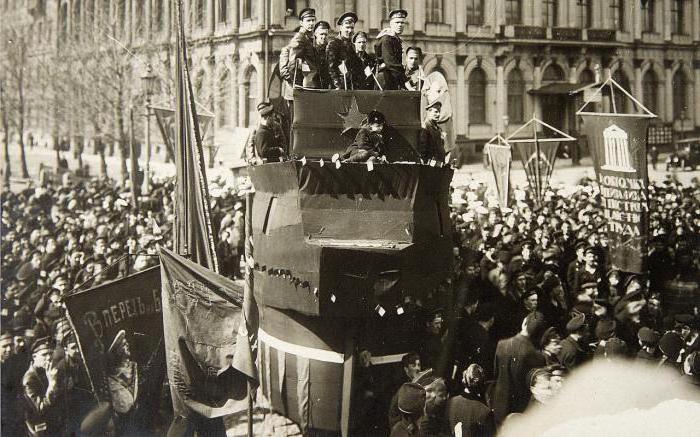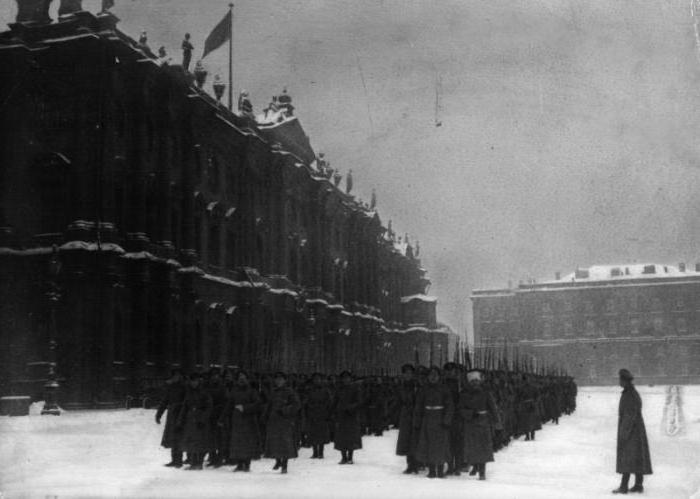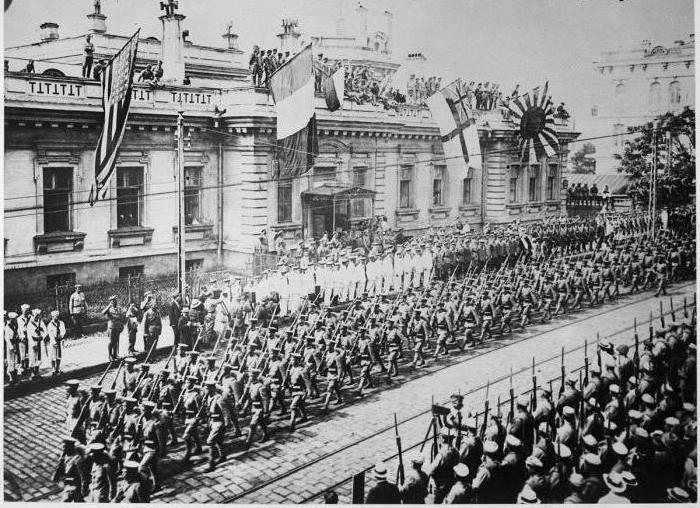The main reason for the intervention of Western countries in the course of hostilities in Russia in 1917 was the desire to take control of the weakened territories of the richest state at that time. The large-scale invasion of foreign troops was supported by the criminal forces of Transnistria, the Lower Volga region, Ukraine and other areas under the control of the Bolshevik authorities.
The beginning of the invasion
Considering the reasons for the intervention, it is necessary first of all to note the desire of foreign states to seize a piece of territory torn by internal strife. The landing of enemy troops took place in the Crimea, Sevastopol, Murmansk, and Vladivostok.
On the territory of the Russian Empire, there were a huge number of political parties that did not want to submit to the center. The reasons for the intervention lie on the surface: taking advantage of the weakening of the country's borders as a result of revolutionary sentiments, the Bolshevik opponents sought to suppress Soviet power by force and establish their own order in the state.
Also, Western countries defended their interests on the territory of the Russian Empire. In the civil conflict of 1917 intervened: France, Germany, Great Britain, America, Japan. They were supported by local groups, which had captured vast territories by then.
The development and extinction of the invasion
The reasons for the intervention in the civil war are easy to understand. The criminal groups wanted to overthrow the Bolshevik power with an armed uprising. The following forces supported the Western countries:
- The army of General Anton Denikin held back the southern direction.
- Don Cossack army of General Peter Krasnov.
- Omsk and Perm was occupied by Alexander Kolchak.
- Separate groups occupied Sevastopol, Batumi, Novorossiysk.
- Odessa was surrendered to the landing from Britain, they were joined by trained units of French saboteurs.
All the reasons for the intervention in the civil war in Russia boiled down to one thing: the desire of Western countries to completely paralyze the revolutionary central power and dismember the once powerful power. The Austro-Hungarian army units came to the rescue. They occupied the territories of the modern Baltic states and the southern regions of the Russian Empire.
To seize and divide the rich lands of a weakened country - these were the true reasons for the intervention in the civil war in Russia. Briefly, the situation can be described as follows: "the vultures felt a wounded beast and tried to finish him off in order to profit." But the attack did not last long. The Red Army began offensive operations with the organization of the Eastern and Northern Fronts.
Change
The second half of 1918 was marked by successful operations by the Red Army. First, the Volga region was liberated, then the Bolsheviks moved to the territory of the Urals. The interventionists gradually retreated one after another. First, German units left the territory of the Russian Empire. The reason was the revolutionary coup in the homeland.
Following them, the French forces were disoriented. A little later, the British troops withdrew. But the central government had 2 years of bloody battles with the militias of the white groups. Only in January 1919 was it possible to defeat the army of Krasnov. By May, the forces of Kolchak, Denikin, and Yudenich were broken. By August, the Red Army was able to liberate Central Asia, the territory of Ukraine, Crimea.
Total
Civil war in Russia 1917-1923 claimed about 22 million human lives, of which more than 13 million were killed on the battlefields.At the cost of enormous losses, they still managed to maintain the integrity of the state. But agriculture and industry fell into complete decline. A long restoration of the country and a struggle with domestic pro-Western sentiments were ahead. 
As a result, we can identify the main causes of Western intervention:
- The disagreeing views on the mood among the masses were divided by the opinion of the working people and the bourgeois.
- Dissatisfaction with the policy of the Bolsheviks in certain regions of the country.
- Contradictions with Germany over the signing of the Brest Peace.
- Aggression by the Entente countries in response to Russia's withdrawal from the world war.
The deployment of intervention forces was enormous. But the revolutionaries united in the fight against a common enemy and delivered decisive blows to the positions of Polish and Wrangel forces. As a result, almost all the territories of the Russian Empire were liberated. The victory was achieved thanks to the support of the people of the Bolshevik government. The main reason for this phenomenon was the decrees on peace and land.